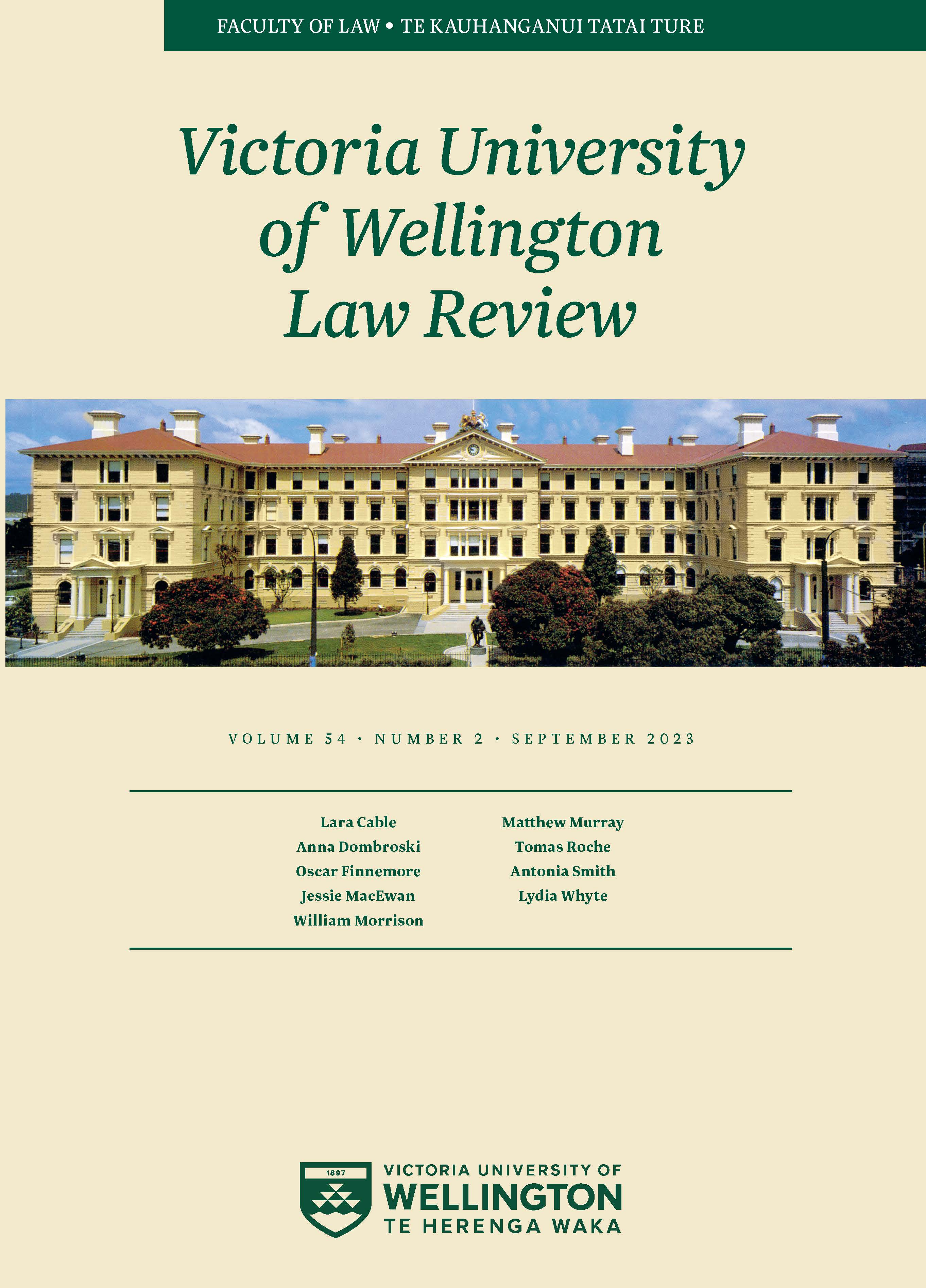Dismantling the Grocery Duopoly: The Case for Prohibiting Grocery Covenants via Enforcement Action
Abstract
New Zealand's retail grocery sector is dominated by a duopoly that impedes opportunities for new entry by lodging restrictive covenants on strategic sites and exclusive covenants in lease agreements. This enables the duopoly to limit competition and artificially raise grocery prices, harming consumers and society as a whole. In response, the Government has recently passed legislation prohibiting the duopoly's covenants. This article applauds action against anti-competitive grocery covenants. However, it argues that enforcement action, rather than legislation, would have been the more appropriate avenue for four reasons. First, under the new legislation, grocery retailers can apply for an exemption so that certain covenants remain in force, the outcome of which can be appealed. This means cases concerning grocery covenants will likely appear before the courts anyway. Secondly, enforcement action under existing legislation would have captured a key distinction that the new legislation overlooks. That is, while the duopoly's restrictive covenants are overwhelmingly anti-competitive and should all be unenforceable, in limited circumstances exclusive covenants are arguably net pro-competitive and should remain in force. Thirdly, and flowing from this, establishing via the courts that grocery covenants are in fact anti-competitive would have provided a more legitimate basis for prohibiting them. Finally, the Government's position that litigation is inefficient as each covenant must be individually analysed overlooks both the ANZCO Foods Waitara Ltd v AFFCO New Zealand Ltd collective covenants approach under s 28 and the s 30 cartel provisions in the existing Commerce Act 1986. To this end, this article argues that all of the duopoly's restrictive covenants and the great majority of their exclusive covenants breach existing competition laws, namely ss 28 and 30 of the Commerce Act.
Downloads
Downloads
Published
How to Cite
Issue
Section
License
Authors retain copyright in their work published in the Victoria University of Wellington Law Review.


